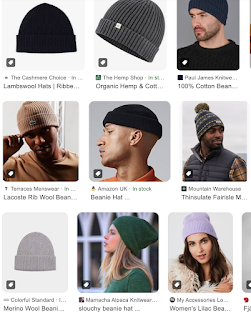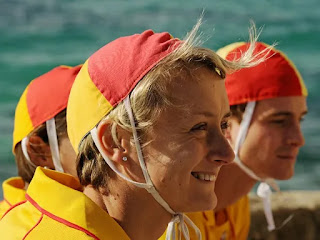Looking through my long list of topic requests, I've found a duplicate--so that surely deserves to be treated first.
Mrs Redboots recently emailed to say:
I was watching an on-line video, yesterday, of a chef preparing fish, and instead of saying he was filleting it (with a hard "t") as I should have done, he said he was "filay-ing" it, as though it were a French word. And later on, I saw it written as "filet", where I would have used "fillet". Which is the original - for me "filet" is the French term, and I hadn't realised it was also used in America.
And Laura, a New Yorker in Cambridge, wrote 10 months ago (sorry, Laura) with:
My British husband and I find endless entertainment emailing your blog entries to each other. What a great resource. I have searched past entries and cannot find anything pertaining to our longest running argument - on the pronunciation of "fillet." He says "filliT," and I would say "fillay" (like ballet, right?), although I refrain from doing so here for fear that butchers won't understand me. I thought British English would be the version more influenced by French...then again, I pronounce the er in foyer whereas he would say "foyay." What is going on with the influence of French in American and British English?
I'll have to preface this by saying that I can't possibly discuss all such differences in the pronunciation of words from French here--there are lots of them. And let's not get into the pronunciation of words from other languages just yet (I have posts-in-process on some of them). To start with Mrs R's question about which is original, well, in a sense, the question doesn't really work, since the word was borrowed at a time before spelling was standardi{s/z}ed in English. And it may not have been standardi{s/z}ed in French, either (do we have an expert out there?). Modern French spelling is based (according to what the internets tell me) on
medi(a)eval pronunciation, which would mean that at the time it was first borrowed into English, the 't' would have been pronounced in the original French word.
Looking at the OED, we can see the word in English back to 1327--though that is in the sense of 'a ribbon used as a headband' . The first quotation for the 'cut of meat' meaning in English comes from around 1420, in the plural
filetes (remember, though, that the word would have been borrowed earlier than this and used in speech and in writing that hasn't survived the centuries). The 1327 quote uses
filet, but in all of its senses, the spellings vary for the first few centuries. In the 'cut of meat' uses, we also see
Fylettes (c 1430),
Phillets (1658),
Filets (1725). From the 1741 quotation,
fillets rules until the first American quotation in 1858 (
filets). So, judging from the dates, it could be that it was imported to the Americas at a time when its spelling had not yet settled down and the influence of French settlers headed it toward(s) the more modern French spelling and pronunciation. According to the
Dictionary of American Regional English, in Maine people working in the fisheries say
fillit on the job (their citation is from 1975, so may not be true now), though in lay use, it's
filet, as in the rest of the US. For the McDonald's
Filet-o-Fish, there is some question about how it should be pronounced in the UK, but
the official McDonald's answer is '“Filet-o-Fish” can be pronounced any way you wish. Most people say “Filay”.'
Similarly, Americans tend to pronounce
valet as 'valay', while it is more common to pronounce the 't' in BrE. As I've mentioned before
gillet/gilet show a similar spelling difference--but that difference isn't strictly on national lines--I see both
gillet and
gilet in England and rarely either in the US. It's usually pronounced in the French way, but then it was imported from French more recently--in the 19th century.
Across both dialects, it's a general rule that the longer the word has been in English, the more likely it is to be pronounced as it is spelled/spelt. So,
claret (a wine name rarely heard in the US, where it would tend to be called
Bordeaux), which has been in English since at least the middle ages, is pronounced with the 't', but
Cabernet, which came to us in the 19th century, isn't. But still, there are a lot of differences. Let's divide them into types: consonant differences, vowel differences and stress differences--though where there are stress differences there are often also C and V differences. From here I'm going to do less history and more listing.
Among the consonant differences we have
the already-discussed herb ('h' versus no 'h'). Then there's the French 'ch'.
Chassis usually has a hard 'ch' in AmE, but usually a soft one ('sh') in BrE. (Both usually don't pronounce the final 's'.) According to the OED, preferences for the pronunciation of
niche are reversed in BrE and AmE, with rhymes-with-
itch dominating in AmE and rhymes-with-
leash dominating in BrE. Myself, I've always pronounced it to rhyme with
leash wherever I've been--but the pronunciation was only 'Frenchified' in English during the 20th century. So,
nitch-sayers can consider themselves to be a certain kind of authentic, and
niche-sayers can consider themselves to be another kind of authentic. And then there's
schedule, which begins with a 'sh' in BrE, and a 'sk' in AmE--though one does hear the AmE pronunciation in BrE now (and BrE speakers often say
timetable where AmE speakers would say
schedule).
On the vowels, I've been mocked in England for my AmE pronunciation of
France (rhymes with
ants but without the 't'). Yes, the standard, southern BrE pronunciation is more like the French pronunciation, but it's also part of a more general pattern of AmE having the [ae] sound (as in
cat) and standard, southern BrE having a long [a:] in these places--cf.
dance, lance,
chance and
answer. And the southern BrE pronunciation of these things in these ways is due to a modern change in pronunciation (see
this discussion of the TRAP-BATH split). So, I'm not convinced that BrE speakers say Frahnce (or Fraunce, if you prefer) because they are being authentic in a French way--they are being true to the rules of their own dialect.
A more irregular difference is in
clique, which is 'cleek' in BrE, but often 'click' in AmE. See
the Eggcorn database for some discussion of the consequences.
And
leisure is more French-ish in BrE, where it rhymes with
pleasure, than in AmE where the first syllable is usually pronounced 'lee'.
The 'a' in
apricot is like that in
cap in [my dialect of] AmE and in
cape in BrE. I'm sure there are people in each dialect who would argue that theirs is closer to the French, but the fact that both dialects pronounce the final 't' (and that neither uses a 'b' rather than a 'p') tells us that it's given up any preten{c/s}e of being French.
As you can see, this list is pretty random and I'm sure there are others that could be added. Here's one that has both consonant and vowel differences:
vase. The BrE pronunciation is more like the French with an 'ah' and a 'z', whereas the usual AmE pronunciation rhymes with
place.
On to stress... Note that most of the following involve vowel changes as well, since unstressed vowels are reduced (which often includes making them more centrali{s/z}ed in the mouth).
AmE tends to
keep the French stress pattern make recent loan words sound more 'foreign' by resisting the native urge to stress earlier in the word, whereas stress in BrE tends to gravitate to the front of the word. This means that
ballet is BALay in BrE and balAY in AmE. The same pattern can be found in a number of two-syllable French borrowings.
ballet
baton
beret
bourgeois
café
debris
frontier (in this case, neither dialect preserves the French three-syllable pronunciation)
garage (with changes in the vowels and final consonant too, as mentioned here)
pastel
For three-syllable words, BrE often stresses the penultimate (second-to-last) syllable where AmE stresses the final one, with a secondary stress on the first syllable. Thus one stress pattern can seem as if it's turned inside-out if you're used to the other one. The sore-thumbiest one for me is
Piaget:
escargot
fiancé(e)
Piaget (the Swiss psychologist): BrE pee-AH-ʒay vs. AmE PEE-uh-ʒAY
This is not to say that AmE always resists the urge to move the stress leftward or that BrE never does. Observe
police, which has the accent on the last syllable in both standard dialects--though there is a non-standard (and sometimes jokingly used) first-syllable-stressing pronunciation in some dialects of AmE: PO-leese.
Courgette in BrE retains the final stress.
And then there are the other examples that go the opposite way, with AmE having the stress more front-ward than BrE. This is typically for words that have been in the language longer and seem 'less French' to us than things like
beret and
escargot:
address (noun)
magazine
m(o)ustache(s)
And then there is
Renaissance, for which I quote from the
American Heritage Book of English Usage:
This 19th-century borrowing from French, which literally means “rebirth,” is usually stressed on the first and third syllables in American English. In British English the word is usually stressed on the second syllable, which is pronounced with a long a sound [...]. The American English pronunciation is an approximation to the French pronunciation, while the British English pronunciation reflects the typical English (Germanic) tendency to put the main stress on the root part of a word.
So, I'm sure you'll come up with many more examples and counter-examples, but that's a smattering, at least. Special thanks to Better Half, for letting me (AmE)
sleep in/(BrE)
have a lie-in a few times during the past couple of weeks, so that I could work/blog into the wee hours. Having written all this, I find I've not/I haven't commented on Laura's mention of
foyer, but since I don't want to abuse BH's kindness by sleeping the whole of tomorrow away, I'll just refer you to
this nice little discussion on 'The Growlery'. I've concentrated on pronunciation here, rather than French-versus-English spelling, which we'll go into another time. If you can't wait, see
here and
here and
here for some discussions where French and spelling intersect.






























